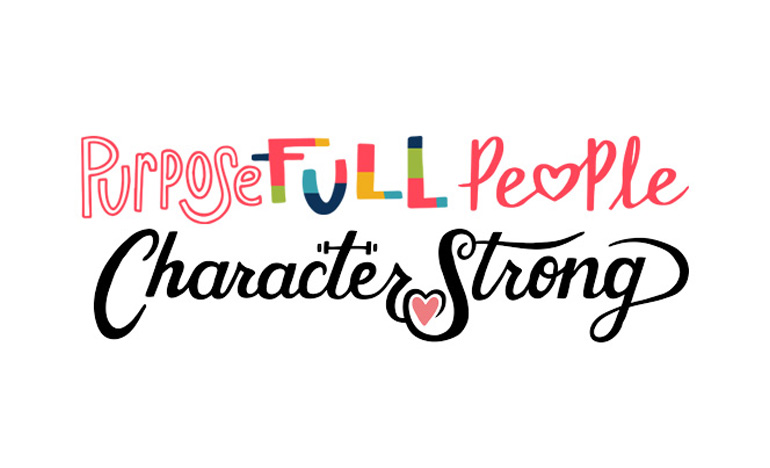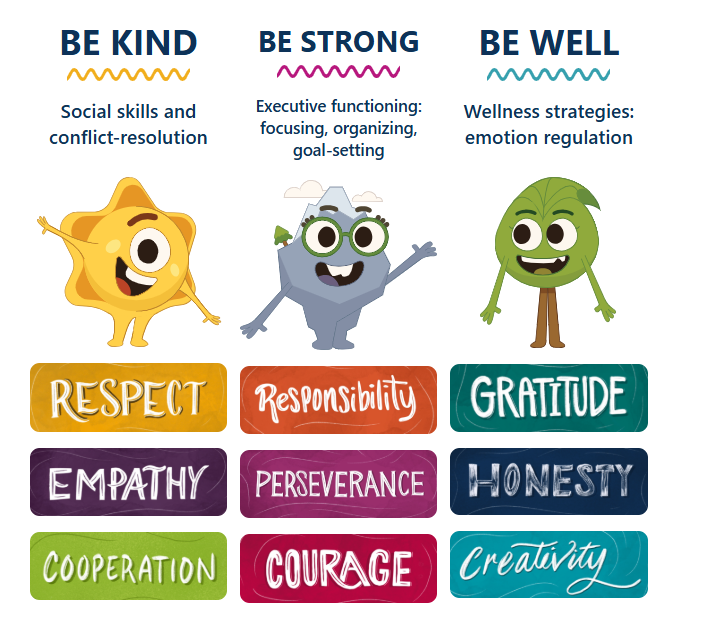

Mills Elementary is committed to the SEL mindset
What is SEL?
Social Emotional Learning involves:
-
Building skills to develop healthy identities,
-
Managing emotions,
-
Setting and achieve personal and classroom goals,
-
Feeling and showing empathy for others,
-
Creating and maintaining supportive relationships, and
-
Making responsible and caring decisions
Why practice SEL?
When our Mountain Lions practice mindfulness, they begin to develop a strong understanding of how they can control their brains, their behavior, their emotions, and in turn, their school performance. Practicing SEL will not only boost academic performance, it will help prepare students for college, careers, and civic engagement.
Incorporating the practice of SEL skills in the classroom not only increases students’ awareness of valuable life skills, it helps our Mountain Lions build stronger relationships, giving students a sense of belonging. As students begin to adjust to the academic and emotional upheaval of the pandemic, our focus on improving students’ SEL skills will directly impact their mental health. At Mills, we believe that an emotionally supportive learning environment will not only set the stage for academic learning, but it will give them opportunities to practice and reflect on social and emotional skills during their time at Mills.
How Mills practices SEL?
1. Fostering academic mindsets
Helping students adapt a growth mindset is key to this process. We want our students to understand who they are as learners so they can improve with effort and new strategies. We hope to show them that the struggle is real, but also an important part of the process. Students should feel they belong, that they can succeed, and that their work has value.
To accomplish this, we like to communicate our high expectations for students by asking them about their thinking, sharing exemplary work, using specific feedback to drive improvement, and communicating that mistakes are an important part of learning. How our teachers communicate the meaning of setbacks, struggle, and failure is critical to our students’ mindsets.
2. Aligning SEL and academic objectives
SEL can help foster learning. One objective is for students to be able to construct viable arguments and critique the reasoning of others in a positive way. To include SEL in this learning, we help our students anticipate how others will hear their arguments and teach active listening skills, so they can understand other perspectives as well. Both of these approaches involve social awareness and relationship skills, which are key SEL goals. SEL is particularly helpful in explaining challenging ideas and tasks, or in lessons that involve understanding decisions or relationships—such as why characters in history or fiction may have acted a certain way.
3. Using interactive instructional practices and structures to promote SEL
Our teachers lead class discussions and group learning in the SEL process by accessing our new Character Strong platform. This can include activities:
-
Journal writing. For example, after a team project, we might ask students to write responses to SEL questions like what is one thing your team can do differently next time to achieve your goals?
-
Class meetings can help encourage participation. They can also help students focus on solving problems and creating a positive climate, with everyone contributing.
-
Collaborative problem-solving. We are big on teamwork at Mills. We will ask students to work together on a project, puzzle, or problem if we can.
-
Goals and progress. Our faculty will get students to set goals for the day, week, quarter, or year, and focus on successes and setbacks, the reasons for them, and the value of the process more than the outcome.
4. Emotional intelligence
At Mills, we definitely take the time to explain the emotions that are expressed in the classroom. Especially in Pre-K and Kindergarten, teachers will help students name a feeling and explain why they are valuable and how they can be appropriately channeled.
